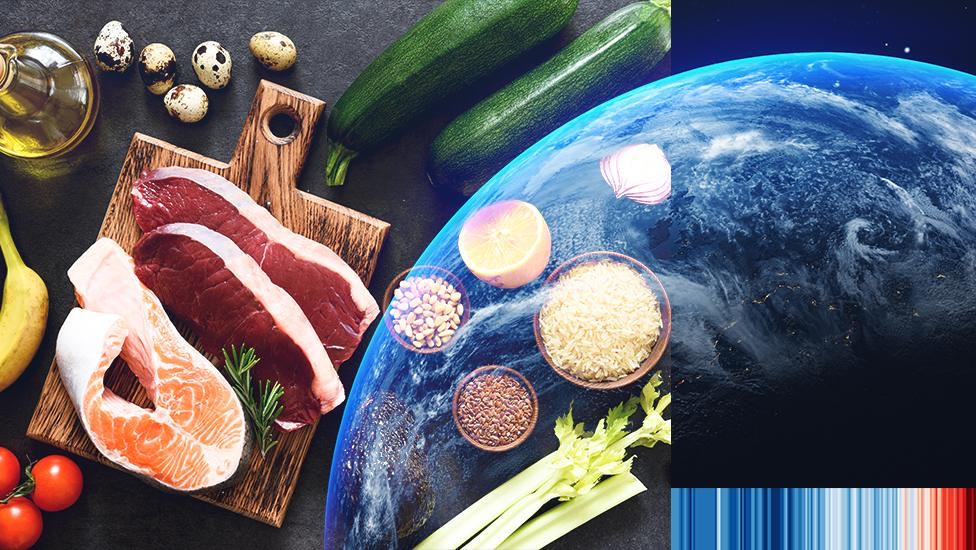By, Sofea Arissa Binti Muzamir
The link between food and climate change is extensive and diverse. Food production, transportation, waste management, and what we eat, all contribute broadly to greenhouse gas emissions, which are major causes of climate change. This traps the heat from the sun and thus contributes to climate change. In reality, the food system that is caused by humans is responsible for almost one-third of all GHG emissions worldwide. Cattle production is particularly significant. Why? This is because of the methane gas emitted from the cattle’s digestive process.
The environmental impact of eating differs depends on the type of food we as humans consume. Meat requires extensive grasslands, which requires us to cut down trees hence releasing carbon dioxide. Dairy products, particularly from cows and sheep, have the greatest climatic effect. For instance, producing milk requires up to 628 litres of water, and 9.0 square meters of land hence the 3.2 kilogram CO2 of emissions. By comparison, almond, oat and soy milk have a smaller greenhouse gas footprint than cow’s milk making them a more environmentally friendly option.
We may take various actions to help alleviate the consequences of climate change. One of the most successful ways is to adopt a more plant-based diet or climate-friendly food recipes. For example, switching from beef to chicken could reduce your climate footprint. Additionally, if you can go completely vegan, then try to go for protein-rich plants like beans, nuts and grains.
Food waste is another major part of the context of climate change. Approximately one-third of all food produced globally is wasted, which means all of the energy to produce food is wasted. When food is rejected, all of the resources necessary to produce it, such as water, land, and energy, are also squandered. Reducing food waste via meal planning, do not order more than what you need, and composting leftovers.
All in all, the relationship between food and climate change is complicated yet doable. We as humans on earth may help to reduce climate change by normalising and practising good eating practises by limiting meat consumption, sustaining local and organic agriculture, and eliminating food waste. Each of us must work together to build a robust food system capable of meeting the Sustainable Goal Development.***

- Islamic University VC Engages with IIUM Community on Integrating Shariah Law into Bangladesh’s Legal System - January 28, 2026
- SISCO Launches Certified Course on Visionary Leadership and Community Engagement at IIUM - January 28, 2026
- Memorandum of Understanding (MoU) Signing Ceremony between IIUM and Aafiyat Holdings Sdn. Bhd - January 28, 2026
